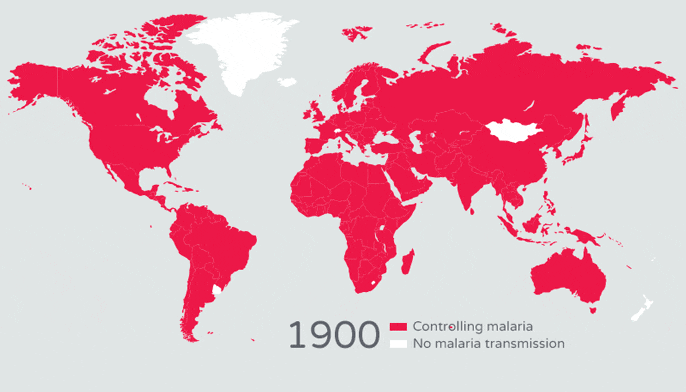Malaria Through Time: A History of the Disease & Efforts to Eradicate It
Share IT

Launch Your Dream Website with Us!
Click Here to Get in touch with Us.
Categories
History of Malaria Eradication
Malaria’s Past: A Shadow Across Time
A parasitic disease carried by mosquitoes, malaria has afflicted humans for thousands of years. Its historical path is a tale of hardship, tenacity, and scientific advancement. This blog explores the origins of malaria, the historical effects it has had on societies, and the current initiatives to eradicate it.
Thank you for reading this post, don't forget to subscribe!Table of Contents

Ancient Roots: A Quiet Assailant
History of Malaria Eradication
Thirty million-year-old fossilised mosquitoes trapped in amber provide the earliest evidence of malaria parasites. According to scientists, the illness first struck African primates before spreading to people.
- Ancient books: Chinese, Greek, and Roman medical books all make mention of symptoms resembling malaria. These accounts imply that the illness has affected civilizations on several continents for thousands of years.
A Disease Affecting Both Kings and Peasants: The Mediaeval Scourge
History of Malaria Eradication
In Europe during the Middle Ages, malaria emerged as a serious health hazard.
- Pervasive Illusions: Since the source of malaria was still unknown, many theories were put up to account for its recurrence, such as foul air and miasma (a toxic type of air).
- Devastating Effect: Population decrease and societal turmoil were caused by malaria outbreaks that ravaged Europe. Malaria even affected members of the royal family; it is believed that King James I of England died as a result of the disease’s consequences.
Quinine: A Sour Cure, a Glimmer of Hope
History of Malaria Eradication
- The Link to the New World: The introduction of malaria to the Americas by European settlers resulted in extensive destruction among native populations.
- An Advantage of Botany: Spanish colonists in South America found quinine, an antimalarial chemical, in the bark of the cinchona tree in the 17th century. Due to its scarcity and great cost, this discovery provided the first effective therapy for malaria, but its application was restricted for generations.
Colonialism: An Empire-Wide Illness
History of Malaria Eradication
- Malaria and Exploration: Malaria was a major barrier to European exploration and colonisation of tropical countries during the colonial era. The sickness devastated the ranks of soldiers and explorers, impeding the attempts of European expansion.
- The Toll on Colonies: Colonised people in Africa, Asia, and the Americas were also severely affected by malaria. It impeded development and added to the economic stagnation in these areas.
The 20th Century: New Hope and Scientific Progress
History of Malaria Eradication
The Development of Public Health There were notable breakthroughs in the 20th century in the fight against malaria. Many areas had successful mosquito control efforts as a result of the development of the potent pesticide DDT. Emerging Challenges: However, worries regarding the long-term effects of DDT use on the environment and the rise of insecticide-resistant insects eventually surfaced. Furthermore, the threat posed by the emergence of antimalarial drug resistance increased.
Eradication Efforts and Global Challenges in the 21st Century
History of Malaria Eradication
- The objectives of the Millennium Development Goals: The Millennium Development Goals of 2000 established aggressive goals for the management of malaria, including a notable decline in both incidence and fatalities. There has been a noticeable decrease in malaria cases as a result of increased funding and international cooperation.
- Opportunities and Difficulties: Malaria continues to pose a serious threat despite advancements, especially in sub-Saharan Africa. To achieve eradication, new tactics are required, such as the creation of potent vaccinations and creative mosquito control techniques.
In summary: A Long Way Off, Bright Future
History of Malaria Eradication
Malaria’s history is evidence of humanity’s continuous fight against an enduring enemy. Even if the road to eradication will be long and difficult, there is hope because of the lessons from the past. Through research funding, tool development, and international collaboration, we can work towards a future devoid of malaria’s deadly effects.

Launch Your Dream Website with Us!
Click Here to Get in touch with Us.





























































Recent Comments